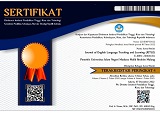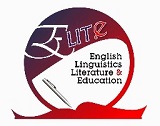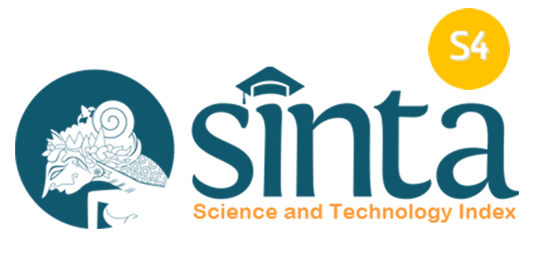Naturalness translation: A parameter of translation quality assessment in a pragmatic perspective
Abstract
Keywords
Full Text:
PDFReferences
al-Qinai, J. (2002). Translation quality assessment. strategies, parametres and procedures. Meta, 45(3), 497–519.
Alma Sari, R., & Hartono, R. (2022). The Naturalness of figurative language from “The trials of Apollo: The hidden oracle” Novel. EEJ, 12(4), 569–577.
ATA. (2021). No Title. https://www.atanet.org/certification/how-the-exam-is-graded/error-categories/
Dewi, N. L. P. V., Mardjohan, A., & Santosa, M. H. (2018). The naturalness of translation in translating short story entitled “Drupadi” from Indonesian into English. Lingua Scientia, 23(1), 1.
Fadaee, E. (2011). Translation naturalness in literary works: English to Persian. Internal Journal of English and Literature, 2(9), 200–205.
Farahzad, F. (1992). Testing achievement in translation classes. The First Language International Conference, 271–278.
Freitag, M., Vilar, D., Grangier, D., Cherry, C., & Foster, G. (2022). A natural diet: Towards improving naturalness of machine translation output. Proceedings of the Annual Meeting of the Association for Computational Linguistics, 3340–3353.
Lawrence Venuti. (2000). Principles of correspondence. In Translation Studies Reader (pp. 126–140).
Majhad, K., Bnini, C., & Kandoussi, M. (2020). Pursuit of naturalness in translation: The case of the English translations of two francophone Maghrebian novels. International Journal of Linguistics and Translation Studies, 1(2), 112–125.
Larson,Mildred. (1984). Meaning based translation: A guide to cross language equivalence. University Press of America.
Nababan, M., Nuraeni, A., & Sumardiono, &. (2012). Pengembangan model penilaian kualitas terjemahan. Kajian Linguistik Dan Sastra, 24(No. 1), 39–57.
Newmark, P. (1988). Approaches to translation. Prentice Hall.
Pesen, A. (2022). Style in translation: Perihan mağden in English. Folklor Akademi Dergisi, 5(3).
Putranti, A. (2018). Modulation: A translation method to obtain naturalness in target language texts. Journal of Language and Literature, 18(1), 98–101.
Rahimy, Ramin. (2004). Alpha, beta and gamma features in translation: Towards the objectivity of testing translation. Iranian Journal of Translation Studies, 2(5).
Zhonggang, S. (2006). A relevance theory perspective on translating the implicit information in literary texts. Journal of Translation, 2(2), 43–60.
DOI: https://doi.org/10.18860/jetle.v5i2.26483
Refbacks
- There are currently no refbacks.
Jalan Gajayana 50 Malang 65144, Jawa Timur, Indonesia

This work is licensed under a Creative Commons Attribution-ShareAlike 4.0 International License.
Indexed by






